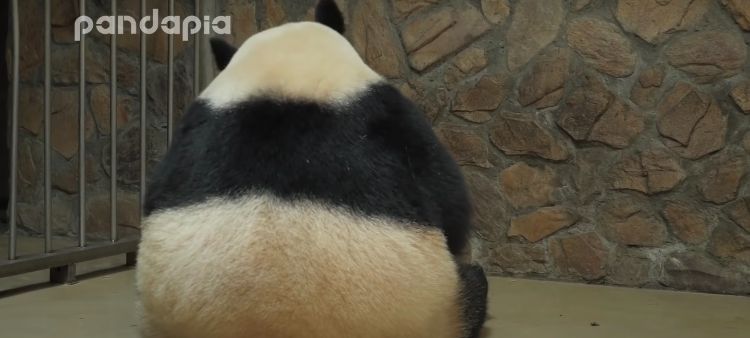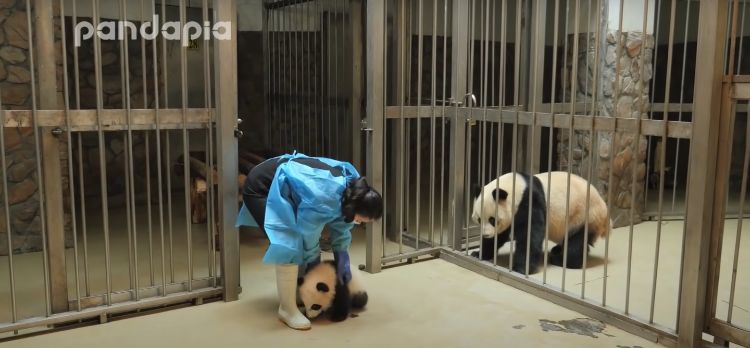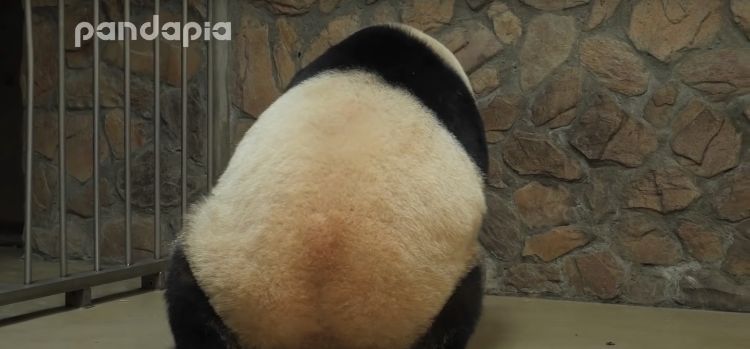New moms are known to be protective of their babies, regardless of species. As humans, we even cling to our young ones after they've been taken away from us. Many mothers can recall a time when their baby has been taken for some time.
It may have been right after the birth and the baby needed a check, or maybe later on at a doctor's office when the baby needed an evaluation, or perhaps simply overly excited family members that keep the baby for a bit longer than mom would like.
Advertisement
For this panda mom, the experience appears to have been the same. Her reaction to getting her baby returned to her is one that most parents can relate to.

pandapia / YouTube
We first see the panda caretaker walking by with a hose, the baby panda sitting in the background, and the concerned mother panda walking along with the gated enclosure toward her baby. While the baby is in no real danger, the separation appears to cause some distress to both the mom and baby.
Panda mothers are known in the animal kingdom as great mothers. When they are first born, pandas are completely helpless, just like human babies. They rely on their mothers for food, protection, and love.

pandapia / YouTube
The mother pushes her face to the bars, trying to get as close to her baby as possible. We see the baby begin to move, heading toward the keeper.
When baby pandas are born, they weigh only 4 ounces. They quickly grow to 6-1/2 pounds by 4 months old. Even at this young age, they start to move around and can be quite speedy.

pandapia / YouTube
In the video, the caretaker notices the wayward panda cub and the distressed mother. The caretaker abandons the hose she was straightening out and picks up the panda cub to return it to its mother.
Anytime a large animal is separated from her offspring, especially one with the teeth of a bear, it is a risk to get involved. The average Giant Panda can reach about 2 to 3 feet at the shoulder when on all fours and females can weigh up to 220 pounds. It's clear this caretaker has the trust of the pandas.

pandapia / YouTube
The caretaker brings the baby panda to the bars of the enclosure where the mother can retrieve it. The mother uses her strong yet gentle jaw to pick up the cub by the scruff and pull it through the enclosure bars.
This move may look familiar - it's similar to how a mother cat would carry her kitten. Although a panda's jaw is powerful enough to fight off a predator and chew bamboo, she can be surprisingly gentle with her cub. She can grab the cub with her teeth at the scruff of their neck and carry them where they need to be.

pandapia / YouTube
Next, we see the mother panda dragging her cub gingerly to the back of the enclosure. The little cub's legs splay out and the resemblance to a human baby or toddler becomes easy to see. The mother now needs to assess her young and be sure they are safe, healthy, uninjured, and clean.
As soon as a baby panda is born, the mother will typically keep both eyes fixed on the baby. Being the source of food and protection, the mother must keep a close watch on her baby. In the wild, there would be predators trying to take advantage of the helplessness of the baby panda. By 7 months a baby panda can start climbing trees, but still needs its mother for more protection. By 16 months, they are usually ready to leave mom's side.

pandapia / YouTube
We see the mother pull her baby into an embrace. This is a common act among panda mothers. Much like a human mother, panda mothers will cuddle and hold their baby in their arms, especially after they are first born and later as a cleaning and bonding ritual.
This style of parenting has translated into the human realm in what's called "panda parenting." With panda parenting, you are there to encourage and support your child, involved to a point but never one to force them to do something. If you are one to gently guide your child, you might be a panda parent.

pandapia / YouTube
We leave the mother panda with her cub nestled to her, cuddling gently and sweetly. This beautiful display of motherly devotion is something that every creature can relate to - that moment when your child sinks in and you share a tender moment together.

pandapia / YouTube
Advertisement

